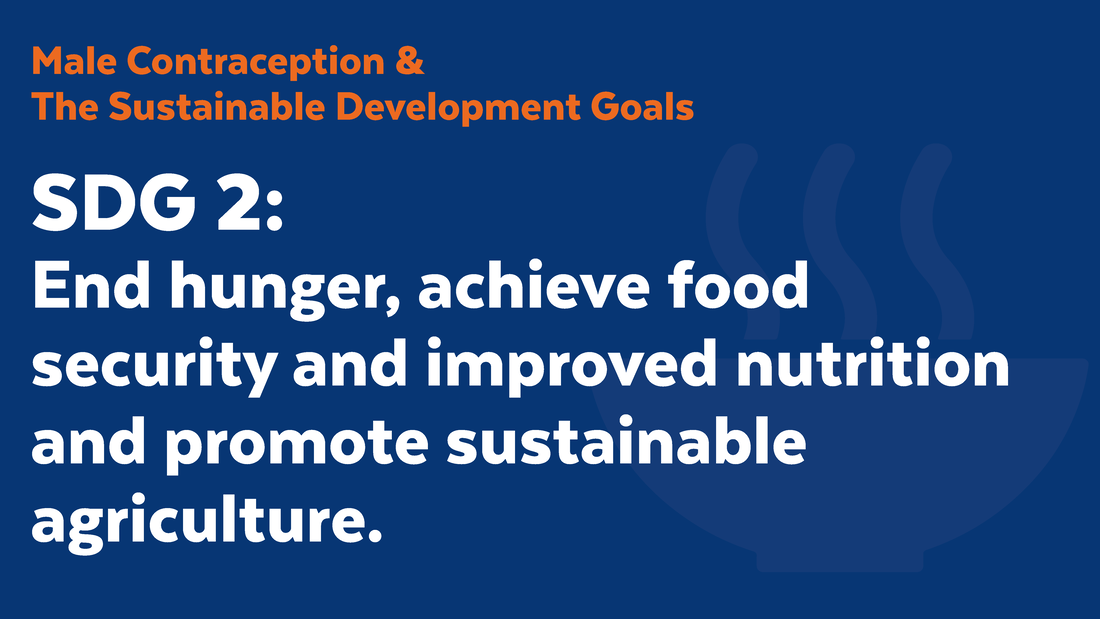|
Over 2 billion people suffer from food insecurity. Male contraception can help end food insecurity by reducing demand, subsequently improving food access and food stability. Eradicating hunger, achieving global food security, and ending all forms of malnutrition and promoting sustainable agriculture are enormous tasks. Food insecurity, which includes food uncertainty, skipping meals, eating less for fear of running out of food, or running out of food entirely, affects an astonishing 2 billion people, over 25% of the global population. Combatting a problem of such magnitude requires leveraging solutions beyond those immediately related to food access and security. If current projections hold, global food demand will double by 2050. Reducing the more than 120 million unintended pregnancies that occur globally each year will help alleviate demand on food resources. That is why it’s so important to invest in new male contraceptives. Sources/References:
- World Health Organization's "The State of Food Security and Nutrition in the World 2018" - Population Action's "Why Population Matters to Food Security" - "Intended and Unintended Pregnancies Worldwide in 2012 and Recent Trends" by Gilda Sedgh, Susheela Singh, and Rubina Hussain - World Economic Forum's "What is hunger?" - Food and Agriculture Organization of the United Nations' "The State of Food Security and Nutrition in the World 2021" - Food Aid Foundation's Wolrd Hunger Statistics - DeliveryRank's "World Hunger: Key Facts and Statistics" Comments are closed.
|
Categories
All
Archives
June 2024
|
|
|
Donate to Male Contraceptive InitiativeYour generous donation makes a difference!
|
© Male Contraceptive Initiative. All rights reserved.


 RSS Feed
RSS Feed
